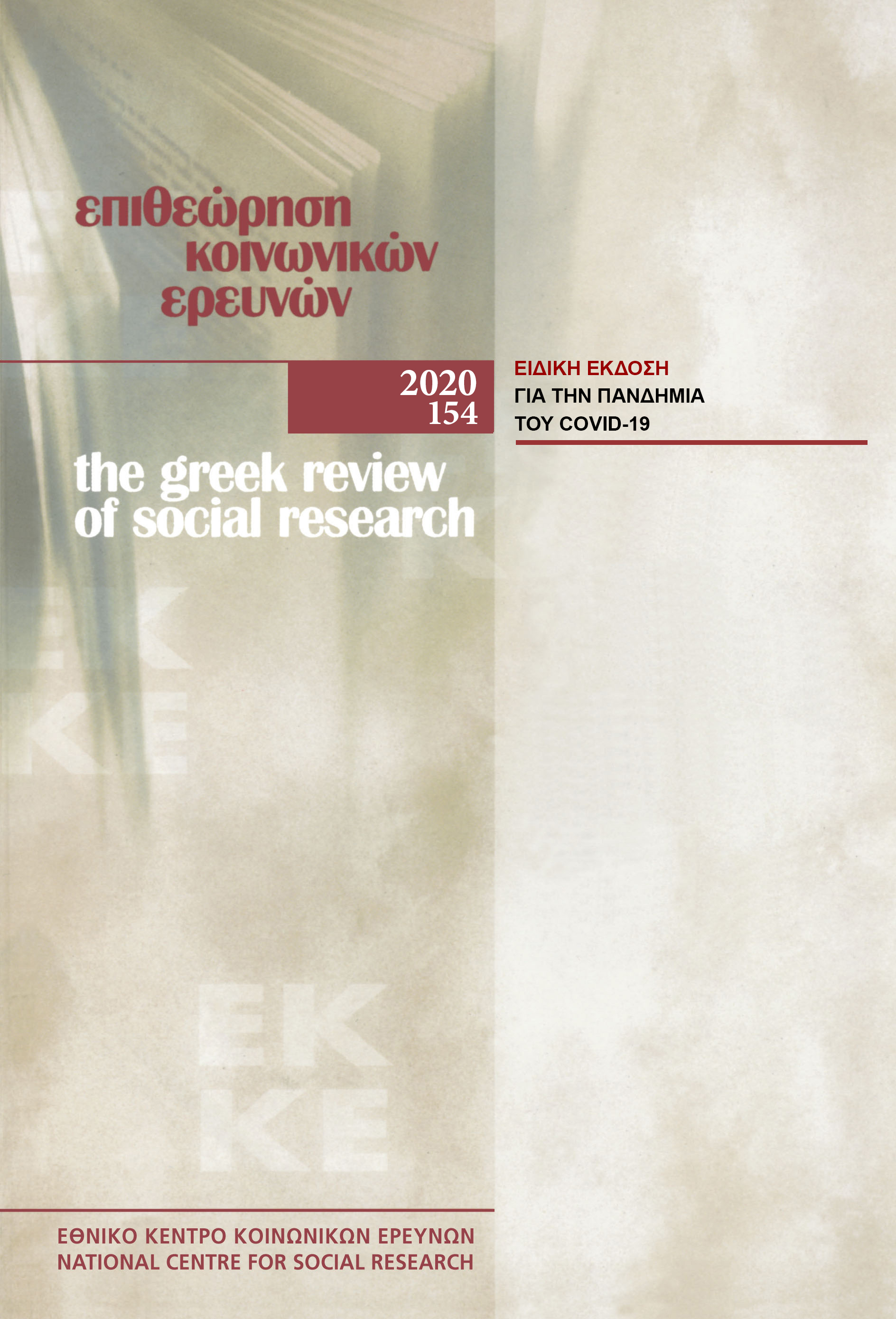State, society and communication media in the coronavirus era

Abstract
The world-historic event of the Covid-19 pandemic has once more confirmed that we live in a hyperconnected world society and that, nowadays, epidemics do not count as merely natural phenomena anymore. Instead, they should rather be viewed as disruptive events of the world society and as a man-made social catastrophe. The coronavirus pandemic has made evident the high complexity of the global system and its increased non-linear dynamics, as well as that the structural form of the world society and the national societies pertains to relational networks which variously differentiate and reproduce themselves. In such context, the present theoretical paper aims to investigate and interpret the complex relationship between the society and the coronavirus crisis, with emphasis on the role played by different forces in the field of information policy and public perceptions on Covid-19 in general. For this reason, we particularly elaborate on cultural factors, as well as on emotions like trust, responsibility and fear during the crisis. We also focus on the dynamics of contemporary media (including their cultural background) in relation to public images of the pandemic, drawing upon relevant empirical findings at international level. In overall, this casts a fresh sociological and interdisciplinary light on the current pandemic as a relational process and a digital media-driven phenomenon.
Article Details
- How to Cite
-
Tsekeris, C., & Zeri, P. (2020). State, society and communication media in the coronavirus era. The Greek Review of Social Research, 154, 109–128. https://doi.org/10.12681/grsr.24518
- Section
- Articles

This work is licensed under a Creative Commons Attribution-NonCommercial 4.0 International License.
Authors who publish with this journal agree to the following terms:
- Authors retain copyright and grant the journal right of first publication with the work simultaneously licensed under a Creative Commons Attribution Non-Commercial License that allows others to share the work with an acknowledgement of the work's authorship and initial publication in this journal.
- Authors are able to enter into separate, additional contractual arrangements for the non-exclusive distribution of the journal's published version of the work (e.g. post it to an institutional repository or publish it in a book), with an acknowledgement of its initial publication in this journal.
- Authors are permitted and encouraged to post their work online (preferably in institutional repositories or on their website) prior to and during the submission process, as it can lead to productive exchanges, as well as earlier and greater citation of published work (See The Effect of Open Access).


